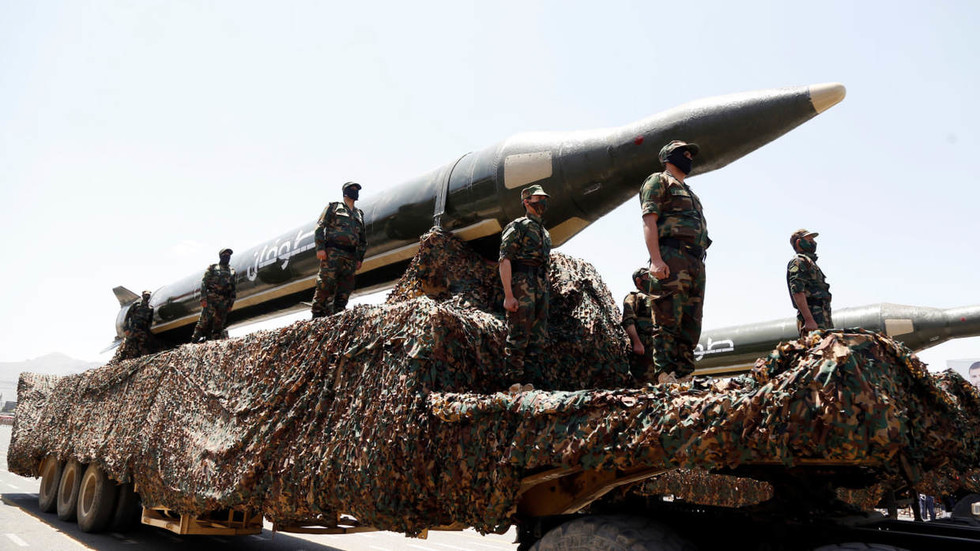The Houthi movement, a Yemeni Shia group controlling significant territories in Yemen, made headlines this week by claiming a successful strike on a target near Tel Aviv using a hypersonic ballistic missile. Despite the Houthi assertions, Israel’s defense forces stated that they intercepted the missile before it could enter their airspace, ensuring that no casualties occurred from the attack. This ongoing tension highlights the Houthis’ continued military maneuvers against Israel, which have consistently escalated since the current Israel-Gaza conflict intensified in October 2022. The Houthis have openly expressed their goal of putting pressure on Israel to cease its operations against Gaza.
In a statement broadcasted on Monday, Houthi military spokesperson Yahya Saree touted the missile strike as a strategic success, emphasizing the group’s commitment to targeting Israeli military interests. On the ground, however, the situation was less dramatic than the Houthis painted it. The Israel Defense Forces (IDF) confirmed the missile’s interception, asserting that any remnants fell harmlessly in the West Bank. Despite the effectiveness of the missile defense system, the incident did cause panic in Tel Aviv, resulting in minor injuries as citizens sought shelter from potential shrapnel. This was not the first provocation, as the Houthis have launched several drones and missiles at Israel since November, indicating a sustained campaign against the country.
The increased Houthi aggressiveness can be attributed to their desire to retaliate against Israel, particularly following the group’s assertion of solidarity with the Palestinian cause amid the prolonged and deadly conflict in Gaza. Just last week, a Houthi drone caused extensive property damage in the Israeli city of Yavne when it struck a building, although luckily no injuries were reported in that instance. Nevertheless, concerns arose within the IDF regarding the inability to detect the drone as a threat in time to initiate defense protocols, a lapse that further emphasizes the potential vulnerabilities in Israel’s defense systems.
In response to the recent missile threat, Prime Minister Benjamin Netanyahu’s administration is reportedly devising a strategy to launch further military action against Houthi positions in Yemen. This comes on the heels of previous Israeli airstrikes on Houthi sites conducted in recent months, aimed at curtailing their military capabilities. Additionally, the situation has attracted international attention, with both the US and UK conducting operations against Houthi locations in Hodeidah province, marking an increase in coalition strikes aimed at suppressing the group’s influence and preventing further missile launches.
The backdrop of the renewed Houthi aggression is Israel’s military campaign against Hamas that commenced after the latter’s raids from Gaza in October 2022. The Houthis, strategically aligned with Iran and opposed to Israeli and Western interests in the region, have broadened their operations to include targeting Israeli vessels as well as those linked to US and UK interests in the Red Sea. These actions have caused significant disruptions in maritime shipping through one of the world’s busiest trade routes, highlighting the far-reaching implications of the conflict in Yemen on global commerce.
As the situation develops, the potential for a broader conflict looms large, with the Houthis leveraging their missile capabilities as a form of deterrence against Israeli military operations in Gaza. The international community remains watchful, given the interconnected nature of conflicts in the Middle East and their capacity to spill over, affecting regional stability and international trade. Both the Houthis and Israel appear steadfast in their positions, and as tensions escalate, the prospects for a diplomatic resolution seem increasingly challenging amidst the backdrop of heavy military conflict and deep-seated animosities.

